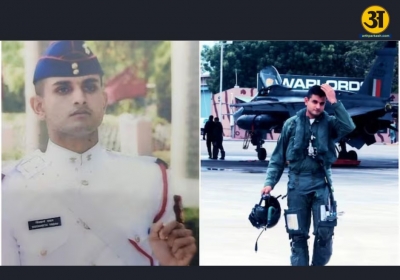.jpg)
Relations with China were going through a "very difficult phase," Jaishankar said
MEA warns nations against accepting Chinese aid
S Jaishankar, India’s Minister for External Affairs, has warned countries not to take Chinese aid and fall into a debt trap.
China’s violation of agreements on not deploying troops forces along the Line of Actual Control (LAC) is the foundation for the current stalemate in relations with India, according to External Affairs Minister S Jaishankar.
On Saturday, Jaishankar made this statement while addressing at the Munich Security Conference on the theme “Regional order and security in the Indo-Pacific.” Marise Payne and Yoshimasa Hayashi, his Australian and Japanese equivalents, were speaking alongside him.
“It’s a problem we’re having with China. And the problem is this – that for 45 years, there was peace, there was stable border management, there were no military casualties on the border from 1975,” he remarked whilst answering to a question regarding India’s tense relations with China.
“That changed, because we had agreements with China not to bring military forces to the Line of Actual Control and the Chinese violated those agreements. Now, the state of the border will determine the state of the relationship, that’s natural. So, obviously relations with China right now are going through a very difficult phase,” Jaishankar said, referring to the military standoff that began in May 2020.
Jaishankar dismissed the notion that India’s connections with the West had improved as a result of the differences with China, saying that India’s ties with the West were “quite decent” even before the brutal clash between Indian and Chinese forces in June 2020, which killed 20 Indian troops and at least four Chinese soldiers.
Following a deadly conflict in the Pangong lake areas, a border standoff between the Indian and Chinese forces occurred in eastern Ladakh, and both sides gradually increased their deployment by bringing in tens of thousands of soldiers as well as heavy weaponry.
After the deadly clash in the Galwan Valley on June 15, 2020, tensions rose even higher.
Responding to a question about India speaking out against China’s actions on the LAC while abstaining from voting on the Ukraine issue at the UN Security Council, he also said that the situation on the LAC could not be compared to the Ukraine crisis. He further said that the two are “distinct challenges.”
In the audience, Bangladesh foreign minister AK Abdul Momen raised the issue of his country’s need for funds for infrastructure projects to meet people’s aspirations, and China offering a “basket of money” and aggressive and affordable proposals, while aid from other nations came with a lot of strings attached.
In response, Jaishankar warned countries against falling into a debt trap while accepting Chinese assistance. “International relations are competitive, every country will look for opportunities and see what it can do but while doing so, it’s in their own interest to be prudent about what they’re getting into,” Jaishankar said.
“We have seen countries, including in our region, being saddled with large debts. We have seen projects which are commercially unsustainable – airports where an aircraft doesn’t come, harbors where a ship doesn’t come. I think people would be justified in asking themselves what am I getting into. Debt becomes equity and that becomes something else,” he added.
On Friday, Jaishankar landed in Germany to participate in the MSC. On the sidelines of the MSC, Jaishankar held a series of talks with foreign ministers and other senior delegates.
Jaishankar took part in an Indo-Pacific panel discussion at the MSC, which was intended at discussing the rising tensions between NATO countries and Russia over Ukraine.
He met with his German counterpart Annalena Baerbock and discussed a wide range of bilateral and global concerns, including the Indo-Pacific, Ukraine’s developments, and Afghanistan’s situation.
Also Read: Members of the Indian Embassy's family in Ukraine have been told to return





